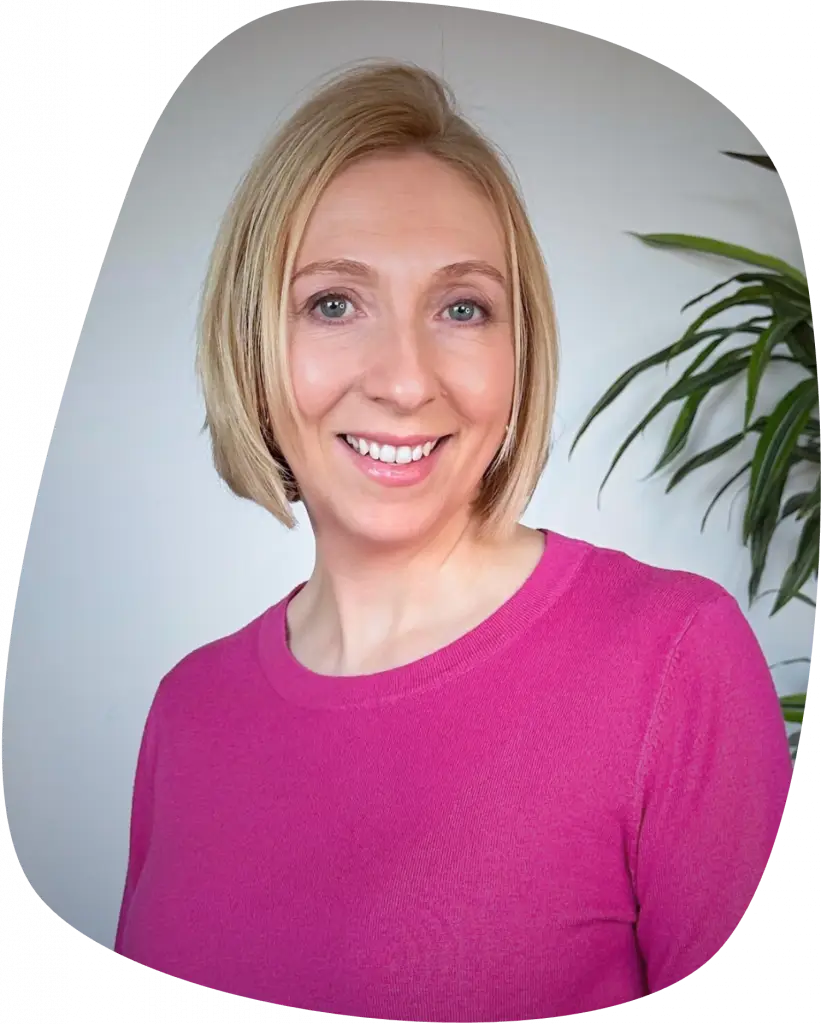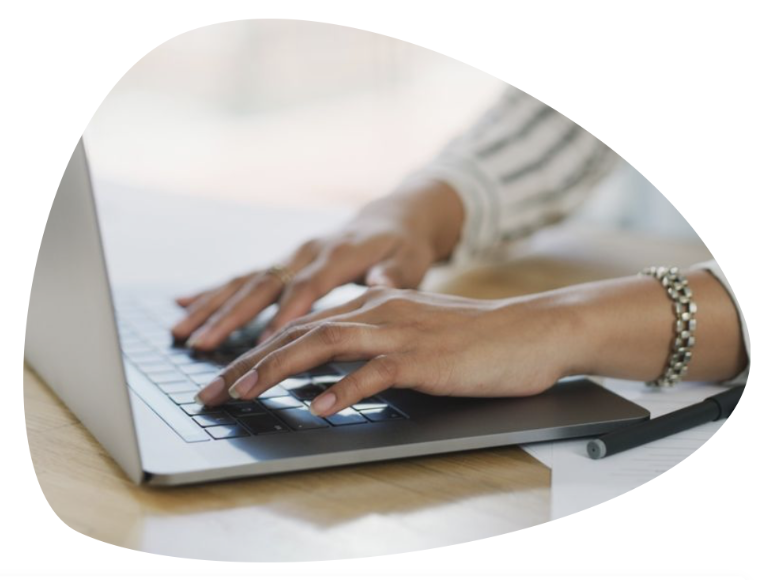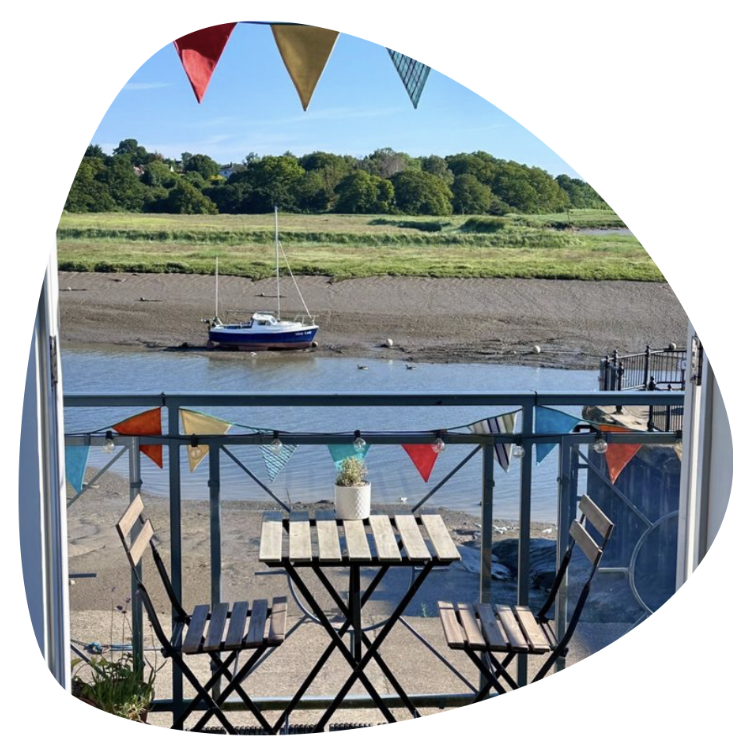“I know what it’s like to live with endometriosis, feel unheard, exhausted and overwhelmed about where to seek help.
Everything changed for me when I reached out for help and took charge of my well-being. By making practical lifestyle changes, prioritising nutrition and addressing workplace issues, my endometriosis symptoms dramatically improved. I was finally able to live my life again and resume my career”.

My decision to train to become a coach and help women with menstrual health issues has been shaped by my professional experience, deeply personal health challenges and my commitment to supporting others through their toughest challenges.
Today, I work with women navigating menstrual health conditions, parents and carers supporting young people, and organisations striving for more inclusive workplaces.
For more than 10 years, I struggled with debilitating menstrual health, but was mostly dismissed by doctors. I experienced medical misogyny being told my symptoms were “normal” or “that’s just how it is for some women”, until they became impossible to ignore.
I was eventually diagnosed with stage 4 endometriosis. One of my ovaries had adhered to my bowel and I was informed I had numerous cysts, the largest being the size of a grapefruit. The pain was excruciating and eventually I was in pain more days of the month than I wasn’t, with recovery taking longer each cycle.

Years of invasive surgical procedures followed, which didn’t make any improvement to my symptoms. The endometriosis just kept growing and the multiple operations were creating more adhesions and scar tissue. And all this time, I was trying to get pregnant.
An operation to remove one of my ovaries damaged my bowel, resulting in an emergency laparotomy, a stay in intensive care, and four months off work.
Despite the amazing support I had from family, friends and colleagues, I hit rock bottom.
I don’t know how I got off that bathroom floor, but when I did, I went online looking for anything or anyone that could help me. In the following months, I devoured everything about endometriosis and quizzed people on forums about what had and hadn’t worked for them.
For the first time in years, I felt that I had a small degree of control. And then I couldn’t stop…
Bit by bit I took charge of my well-being. I made practical, sustainable adjustments, to my work life, nourished my body with healthy food, spent time outdoors, practiced self-care, took gentle exercise, explored complementary therapies, and nurtured my relationships and social life. It took time, some of it was trial and error, but the impact on my endometriosis symptoms and overall well-being was transformational.



Not everyone with endometriosis is focused on fertility, and for some, it may not be a priority at all.
For me, a life without children is a path I’ve been forced to walk, not one I chose to take. The treatment options for my endometriosis, continually conflicted with my fertility choices. I was always being told “it’s a balance”, but in my experience the options were mutually exclusive.
The damage caused by endometriosis and multiple operations, led to me undergoing two cycles of IVF. Unfortunately, both were unsuccessful.
It was a brutal journey, but I’ll always be thankful that I had the opportunity to try and have a child via IVF.
Despite the turnaround in my endometriosis symptoms and enjoying good health for several years, due to another complication, I eventually needed to have a full hysterectomy at age 33.
I’ve therefore been taking HRT from a relatively young age. Like many others, over the years, I’ve had to navigate the ongoing confusion, conflicting research, shifting health guidelines, and contradictory news headlines about HRT. Not to mention, the added frustration of ongoing supply issues in the UK.

For 30 years I worked for a large financial services company in a fast-pace, and at times, high pressure corporate environment. I can recall the anxiety of feeling like the unreliable “flaky” team member, always taking time off sick. I understand the strain of balancing work demands with a chronic condition and know how it feels to be embarrassed, unsupported and misunderstood in a professional environment.
Over the years I gained the invaluable experience of both being managed while coping with endometriosis, and of managing other colleagues with menstrual health issues. I’ve experienced both good and bad management approaches to managing a chronic health condition in the workplace.
I’ve found that workplace reasonable adjustments often focus on physical changes, like furniture, IT equipment or flexible working hours, but there are other ways to adapt your work environment to support your well-being and performance.
Since 2017, I’ve been co-leading the North Essex support group for Endometriosis UK, the UK’s leading charity for those affected by endometriosis. This offers a safe space and vital support and information for those navigating the impact of their condition.
Through my work as a volunteer, I’ve engaged with hundreds of inspirational women, gaining in-depth insight into the impact of menstrual health conditions, the challenges faced, and traditional and alternative treatment approaches.
After our meetings, while we are tidying up and putting away the chairs, I’m often approached for a one-to-one conversation and for further support about someone’s personal circumstances. I always wish I could give more time to help and support those that need it, and this is another reason why I decided to coach.
If you haven’t attended a support group before, I’d strongly recommend it. They’re free and offer a friendly, safe space to meet others sharing their experiences and being there for one another.
For more information about Endometriosis UK, your nearest support group, and to access their excellent information and free support, click on the link below.-

I live in a small, picturesque town in North Essex, where I coach from home, on the beautiful quayside.
This unique setting inspired the name “Coach On The Quay,” reflecting both my waterside location and my passion for helping others to steer their own course.